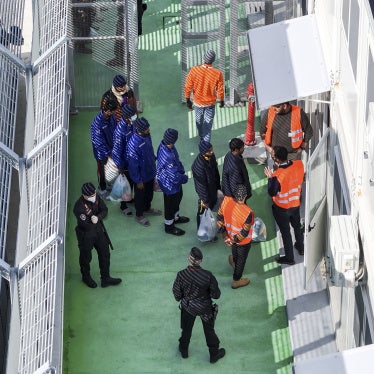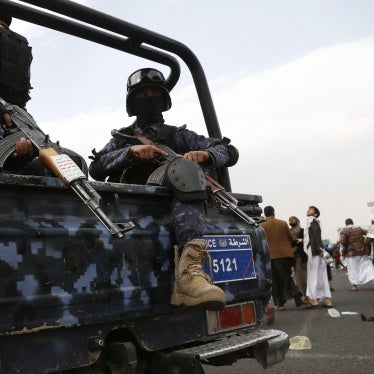With a showdown brewing next week over Russian atrocities in Chechnya, Human Rights Watch today urged the United Nations Commission on Human Rights to insist on a thorough investigation of reported war crimes.
The European Union, backed by a half-dozen other countries, has presented a draft resolution that would deplore the abuses in Chechnya; call for an independent Russian probe leading to trials; request visits to the region by special U.N. envoys on torture, summary executions, violence against women, the internally displaced, and children and armed conflict; and urge Russia to allow access to the U.N. High Commissioner for Refugees and the International Committee of the Red Cross.
The E.U. resolution has been held in abeyance, however, as its sponsors and Russia negotiate a consensus "Chairman's statement" due to be considered on Tuesday. Earlier this week, both Russia and the European Union circulated competing draft statements, which are understood to be radically different. If there is no agreement on a statement, the European Union resolution will be put to a vote.
Human Rights Watch has documented the summary executions of more than 120 civilians in Chechnya, as well as many others abuses (see https://www.hrw.org/campaigns/russia/chechnya/).
Human Rights Watch said that in order to be meaningful, any U.N. Commission statement or resolution needed to contain the following elements:
- a recognition that serious human rights abuses and war crimes have been committed by Russian troops in Chechnya, including mass killings, summary executions, torture, rape, and pillage;
- a recognition that Russia's prosecutorial agencies have so far failed to investigate these abuses;
- a demand for a credible and independent investigation into allegations of abuse, with a strong international role;
-immediate access to Chechnya for international monitors to investigate allegations of abuse; and
-transparency in domestic investigative and prosecutorial efforts into abuses in Chechnya.
Human Rights Watch said that Russian government promises to establish a commission to investigate Chechnya abuses were not credible and could not be seen as a substitute for a serious international effort.
"Russia's promises are just shadow play," said Weschler. "They have not made any serious effort to investigate the Chechnya atrocities so far, and experience from the 1994-96 war in Chechnya suggests they never will. When the Russians talk about looking into allegations of atrocities, they are trying to distract the international community from its responsibilities. This is the international community's last chance to call Russia to account for its actions."
Human Rights Watch has documented serious war crimes by Russian troops, including mass killings and summary executions, rapes, widespread looting, as well as torture and beatings in "filtration camps." U.N. High Commissioner for Human Rights Mary Robinson, who visited the region, has also presented detailed information about mass killings, executions, torture including rape, and pillage to the Commission.








